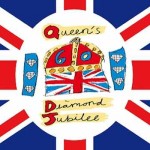
Most of the UK seems to have been distracted over the past few weeks (and especially over the four-day long weekend that is just now drawing to an end) by the celebrations surrounding the Diamond Jubilee of Queen Elizabeth II.
Not so the hard working team at the Endangered Languages Archive (ELAR) at SOAS who have been curating and processing materials to add to our website.
In the past week the following nine deposits (in alphabetical order) have been added:
- Avatime from Ghana by Saskia van Putten and Rebecca Defina — video and audio recordings in various genres such as ceremonial events, personal stories, route descriptions, folk tales, conversations, recipes and speech elicited using various materials. Part of the corpus has been transcribed and translated using ELAN, and there is a word list in Toolbox format
- Baram from Nepal by Yogendra Prasad Yadava — audio and video files with annotations in ELAN and Toolbox, and metadata files in IMDI format
- Cappadocian from Greece by Mark Janse — a Greek-Turkish mixed language thought to have died in the 1960s until its rediscovery in 2005. The corpus includes digital audio and text files
- Chatino from Mexico by Anthony Woodbury — a collection of audio and video recordings of narratives, interviews, conversations, oratory, ritual speech, linguistic elicitations, and other genres in all major varieties of Chatino. The collection of almost 2,500 files also includes transcriptions, translations, and annotations of some of the recorded texts, data sets, word lists and analyses, academic papers, and pedagogical materials
- Glavda from Nigeria by Jonathan Owens — includes audio data based on interviews, free conversations and verbal art among speakers in the rural homeland, along with the language of Glavda speakers in Maiduguri, the largest urban center in the region, and the goal of considerable out-migration from the rural homeland
- Inuit sign from Canada by Joke Schuit — a collection of video stories of past and present life of deaf Inuit community members, and some elicitation tasks based on picture drawings and/or cartoon clips, plus descriptive documents and annotation files
- Ju|’hoan from Namibia by Megan Biesele — the corpus contains 150 audio recordings, 27 video recordings, transcriptions, language lessons and a dictionary. The materials cover 1970 to the present
- Middle Chulym from Siberia by David Harrison — includes unedited video, audio, photos, lexica, and field notes, as well as processed, edited and annotated recordings, scholarly articles, and a documentary film
- Langue des Signes Malienne from Mali by Victoria Nyst — video recordings of spontaneous narratives and dialogues by deaf signers, as well as semi-spontaneous discourse in response to cartoons and picture-based tasks, annotated in ELAN at the gloss, translation or abstract level
In addition to this we have also been working on our “person pages” on the ELAR website. Since ELAR first went online each depositor has been provided with a basic home page giving information about themselves, including links to their ELDP project information (if they are a grantee), their personal web site etc. (see for example Claire Bowern’s depositor page). We are now extending this to all registered users of the ELAR archive who are being invited to set up and edit their own information (see my user page as a sample — there is even a picture hidden in one of the tabs!). In this way we are adding more social context to archive depositing and use. So, for example, if a user requests access to materials with the protocol of “S” (subscriber only) the depositor can access the details on their ELAR user page in order to assist in deciding if this is an appropriate person to be given access to the requested materials (in the parlance of residents in my local area in London it could help figuring out whether ‘e’s a dimond geezer or not). We are planning further developments in this area in the near future that we will report on when they are ready to go live.
 Follow
Follow